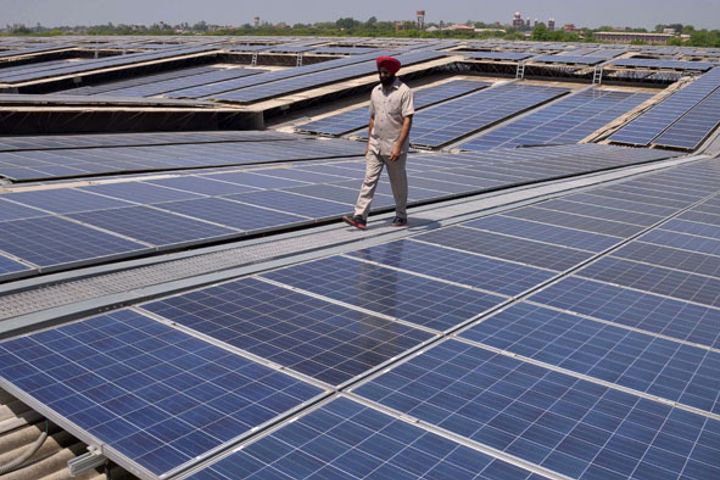 India Issues Photovoltaic Ruling Urging 25% Safeguard Tariff
India Issues Photovoltaic Ruling Urging 25% Safeguard Tariff(Yicai Global) July 19 -- India's Directorate General of Trade Remedies made a final decision on July 16 on photovoltaic safeguard measures to "prevent the foundation of its solar industry from being undermined," China's state news outlet The Paper reported.
DGTR recommended imposing a two-year safeguard duty on imported battery parts and components, with a tax of 25 percent, 20 percent and 15 percent for the first year and the first and second half of the following year, respectively, the newly-created trade authority announced on its official website.
Developing countries other than China and Malaysia, including Thailand, Vietnam and the Philippines, will enjoy an exemption from the duty as export from each of these countries to India accounts for no more than 3 percent of the latter's total imports, and their combined exports make up no more than 9 percent of the latter's total imports.
China has become the largest photovoltaic component supplier to India, China's largest overseas market for these goods. In all of last year it exported 9.46 gigawatts (1GW=1,000 megawatts) of components to India, about 25 percent of its gross exports. The safeguard duty proposal now awaits approval from the standing committee on safeguards under India's finance ministry and an order from the ministry before taking effect.
If finalized, the safeguard duty would undoubtedly become a double-edged sword and take a toll on both Chinese exporters and Indian installers and importers.
"The top priority for the two-year tax collection plan is to protect the survival and development of local enterprises in India, which, however, is a relatively selfish move rather than a market-oriented one," said Zhang Sen, secretary general of the Solar Energy & PV Products Branch under the China Chamber of Commerce for Import and Export of Machinery and Electronic Products.
CCCME once proactively organized Chinese photovoltaic firms to defend themselves against lawsuits when the US, EU, Turkey, Australia and others conducted anti-dumping and anti-subsidy investigations against China-sourced PV products. The Chinese side has leeway to negotiate with India despite its announcement of the final determination on the tariff rate, whether during the gap period for the new policy or when the duty truly begins one day, Zhang added.
"We will also mobilize China's exporters and their Indian partners to lobby the local government at the same time. India itself needs to rely on China's cost-effective PV parts to support its strong domestic demand and its grand new energy development goal," said Zhang, adding that the safeguard duty would place a heavier burden on Indian importers that would have to assume more PV plant construction costs, with an adverse impact on the overall growth of the country's solar industry.
India posted only about 20GW photovoltaic capacity in total by the end of last year, leaving the country far from its ambitious goal of 100GW PV power by 2022 Narendra Modi, its prime minister, proposed. To this end, India needs to enlist international capacity given the lack of a domestic supply, which its relatively weak manufacturing sector restricts.
Editor: Ben Armour